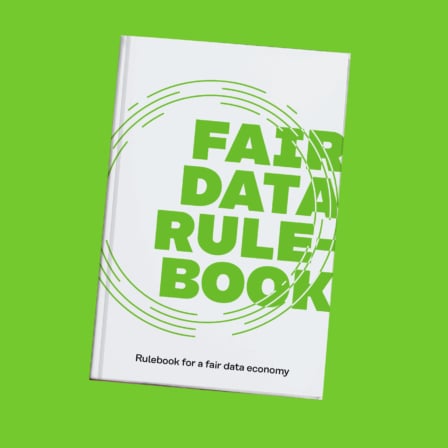Recently, I have noticed confusion over the disclosure of personal data. Hesitation about the hundreds of pages of terms of use required to download apps. Discussions around coffee tables across Finland deal with all the things we authorise when we click “Accept”. Criticism of apps is increasing, and I now even skip downloading great apps when I am asked for my location, for example, for no purpose. The fact that I am often not a customer but that my data is merely raw material for a platform economy is beginning to annoy me.
My data has multidimensional value. It provides information about me as an individual and gives a detailed picture of my activities. It can be used on my behalf, but also against me. We Finns trust the government, authorities and the law. We believe that the government is eternally benevolent and that the laws of democracy protect us as individuals.
The most naive sentence you regularly hear is: “I have nothing to hide”. In reality, few want to share their private thoughts, opinions, health information and fears to unknown parties. Yet people sincerely believe that they are uninteresting and safe in a huge data-generating herd, even though analytics makes it possible to highlight individuals at a very detailed level – with photos – even without artificial intelligence.
My own wake-up call was when I understood that what others do has an effect on my own data and that my ability to influence that is negligible.
My data can be disclosed without my permission for absurd uses and to services that could violate my own values.
No matter how careful I am with my own data, some of it will leak into the black hole via friends anyway.
Even though many wise experts believe otherwise, I hope that privacy is not yet lost – at the least, we can influence its future. Companies certainly also see an opportunity in people’s reluctance; now it is time for poor old Europe, which has been trampled over by the US and Chinese data economies, and for European companies to shine. By creating joint fair play rules for the data economy, we can even attract those who are still reluctant to use data-based services. In addition, by making fair data services clearly stand out, we can give people a chance to choose between those services that are fair and those that are not.
Why does the user interface design of online services not extend to the terms of service?
Because they are for the company, not for the individual. They are the handwriting of Dementors. This universal weakness could be turned into a strength for companies in Europe; after all, this actually has to do with firms’ strategic intent. By introducing the customer experience mindset to the terms of use and register descriptions of services that collect data, we can create trust between consumers and companies. According to Sitra’s survey, a lack of trust is a significant obstacle to the use of online services. By being customer-oriented, clear and transparent, we also stand out in a positive way in the platform economy.
The customer understanding of marketing experts should be exploited more, and those with a background in customer experience should be listened to. Data collection requirements driven by a company’s product silos must be pushed to the background and the overall benefits of the company, built on customer loyalty, have to be protected. It is necessary to believe that a trust-based customer relationship will yield more over the long term – with consent and joint engagement.
The management of Silicon Valley tech companies have already begun to acknowledge the problem. Microsoft’s CEO Satya Nadella underlined in one speech that privacy is a human right, while Apple’s CEO Tim Cook praised the GDPR. And the co-CEO of Salesforce, Keith Block, went on record to say: “Our core values start with trust.” I am looking forward to seeing how the awakening of tech companies will be reflected on a practical level, and how the retrospective introspection of 2018 will change both the collection of data and terms of use in a more people-oriented and fair direction. Meanwhile, we Europeans could already take action.
Five fair data economy tips for marketing and customer experience managers
- Change the terms of use from legal jargon to something that offers a competitive advantage. Sit down with the legal department and negotiate how the terms and conditions can be significantly shortened and simplified. Refrain from using difficult structures and excessive amounts of words, and trust your own professional expertise and customer understanding. Make accepting the terms of service pleasant and make them stand out in a positive way.
- Do not covet too much data at once. Do not demand location data or a Facebook login if you do not need them right now. Even though more is better in the world of data, it is you who has to be able to walk in the shoes of the data provider – an individual.
- Be transparent. State everything that you collect and the reason for it in an honest way. It is better to admit to more than less and build trust over the long term. Prepare an extensive and easy-to-find FAQs section in which you collect all previously received questions with unambiguous answers.
- Make the register description part of the customer journey and prepare it using service design, purely from the customer’s point of view. Use the GDPR as leverage for a good customer experience and make it as quick and easy as possible to request and erase one’s own data. Surprise people with your willingness to serve them.
- Take care of your company’s principles on ethical data use by taking part in preparing them. Keep the customer perspective in tow relentlessly, and do not accept ambiguity. Give concrete examples of the use of data and, most importantly, where you have specifically declined to use data – and continuously collect feedback from your customers so that you can develop the principles even further.
#IHAN

















Recommended
Have some more.